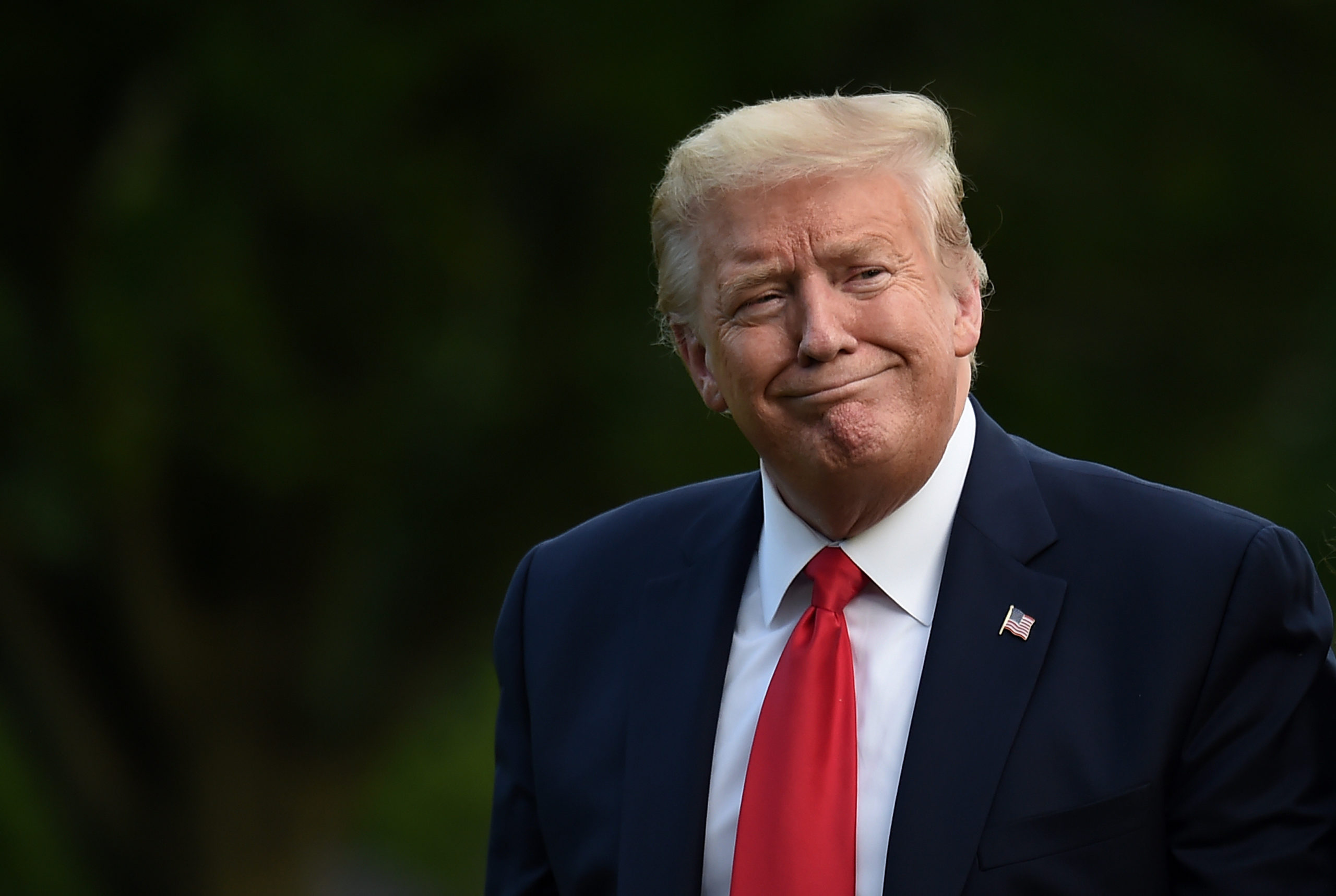U.S. President Donald Trump is expected to sign an executive order aimed at social media companies on Thursday, White House press secretary Kayleigh McEnany told reporters Wednesday evening, a move that comes as the president and his allies have escalated their allegations that companies like Twitter and Facebook stifle Republican voices.
McEnany told reporters aboard Air Force One that the order is “pertaining to social media” but shared no additional details on what it will do. But the announcement revived fears within the online industry that the Trump administration will target a 24-year-old statute that protects the companies from lawsuits — an avenue that a growing number of Republican lawmakers have advocated in their bias allegations about Silicon Valley.
Trump and his supporters have been hammering Twitter since the social network labeled a pair of his tweets with a fact-checking notice for the first time on Tuesday, and the president pledged Wednesday that “big action” will follow.
Twitter acted after Trump had alleged without evidence that mail-in ballots are likely to be “substantially fraudulent,” in tweets that the company said contained misleading information about the electoral process. The move triggered an array of rebukes from Republicans, including Trump.
“@Twitter is now interfering in the 2020 Presidential Election,” Trump tweeted Wednesday, adding that “Twitter is completely stifling FREE SPEECH, and I, as President, will not allow it to happen!”
Democrats, meanwhile, have complained that Twitter has been too slow to respond to a litany of abusive, inaccurate or inflammatory tweets from the president, including his recent baseless insinuations that MSNBC host Joe Scarborough may be guilty of murder.
POLITICO reported last year that the White House was circulating a draft executive order to address long-standing accusations from conservatives about bias by social media companies. CNN later reported that the order would task the Federal Communications Commission with developing regulations to clarify when social media companies qualify for crucial liability protections, and would have the Federal Trade Commission “take those new policies into account when it investigates or files lawsuits against misbehaving companies.”
But the executive order was never unveiled, and even Trumps appointees at those agencies have expressed little appetite for scrutinizing tweets and Facebook posts.
That proposal targeted the online industrys prized liability shield over user-generated content, Section 230 of the Communications Decency Act. The 1996 law broadly protects websites from lawsuits over what their users post, and for taking good-faith efforts to curb illicit material.
But those protections, which have been fiercely defended by the tech industry, have come under scrutiny from officials on both sides of the political spectrum. Republicans have charged that the shield has enabled social media platforms to crack down on their viewpoints with impunity. Theres no conclusive evidence of an anti-conservative bias on social media, and the companies have consistently denied the charges.
Trumps dust-up with Twitter rekindled Republican calls for Congress to roll back the legal shield.
Rep. Matt Gaetz (R-Fla.), a Trump surrogate who has accused Silicon Valley firms of censorship, announced Wednesday that hes drafting his own proposal to roll back those protections if companies engage in “editorializing” or “opine as to the truth or falsity” of statements online, like those made by Trump regarding mail-in ballots. Gaetz said he is “working with my Republican colleagues on the Judiciary Committee” on the legislation, but did not elaborate on the timing for its introduction.
In a similar vein, Republican tech critic Senator Josh Hawley wrote in a letter to Twitter CEO Jack Dorsey on Wednesday that the companys “decision to editorialize regarding the content of political speech raises questions about why Twitter should continue receiving special status and special immunity from publisher liability under Section 230 of the Communications Decency Act. “And he later teased on social media plans for a separate proposal to “end these special government giveaways.”
“If @Twitter wants to editorialize & comment on users posts, it should be divested of its special status under federal law (Section 230) & forced to play by same rules as all other publishers. Fair is fair,” Hawley tweeted.
Some Democratic lawmakers have also advocated restricting the industrys Section 230 protections, but for very different seasons — such as failing to fact-check politicians like Trump.
The GOP calls got rhetorical support Wednesday night from FCC member Brendan Carr, a Republican who some see as a potential future chairman of the agency. Appearing on Fox News “Tucker Carlson Tonight,” he singled out Twitters fact check of Trumps tweets as imposing a “partisan political viewpoint” and slammed Facebooks recent creation of an independent review board to review the companys content decisions.
“I think going forward if these entities want to be political actors … like every othRead More – Source
[contf] [contfnew] 
politico
[contfnewc] [contfnewc]























































